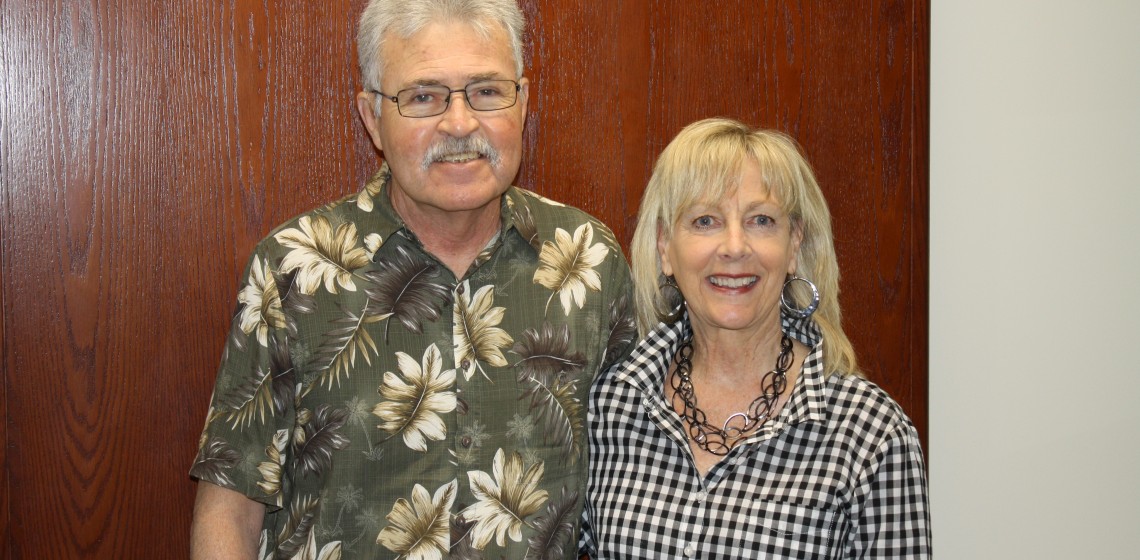
Published on September 11, 2018
Clay Howlett was a junior in high school when he was diagnosed with diabetes. He felt dehydrated and had lost weight, about 25 pounds. Initially, Clay went to his family doctor and then to a hospital, where he was given his first dose of insulin.
“I was told I couldn’t have any sugar,” Clay recalls. “I remember one time during ball practice, my blood sugar dropped really low.” Clay says he experienced other symptoms, such as being tired, breaking out in sweats and constantly feeling thirsty.
Since age 17, Clay has had type 1 diabetes, which occurs when a person’s body does not produce insulin, a hormone that helps move sugar, or glucose, into the body’s tissues, where cells use it as fuel. According to the American Diabetes Association, only 5% of people with diabetes have the type 1 form.
Before that time, Clay did not know many people with diabetes. A dispatcher who worked for his father had the disease. Clay later learned one of his great-grandparents had diabetes.
“My uncle, my dad’s brother, was diabetic, too. He had type 2 diabetes, (when a person’s body does not properly use insulin) but he controlled it with his diet,” Clay says.
In his senior year in high school, Clay wanted to learn as much as he could about the condition he had, so he wrote his term paper on diabetes that year.
Clay has what some people refer to as brittle diabetes, as his wife of 12 years Patty explains. Brittle diabetes causes a person’s blood sugar levels to spike or drop at rapid rates. “His blood sugar can drop really quickly,” Patty says. “For a time there, every hour, we weren’t sure what would happen next.”
During a visit to his mother in Springfield, Missouri, Clay’s blood sugar dropped to an extremely low rate, so he was taken by an ambulance to a local hospital.
When Clay returned home to Rolla, Patty encouraged him to visit his doctor, Bohdan Lebedowicz, MD, a Phelps Health senior care and internal medicine physician. Dr. Lebedowicz asked if Clay would be interested in Phelps Health's diabetes education services.
Both Clay and Patty say they felt they already knew a lot about diabetes but initially agreed to attend one session.
That same day as Clay’s appointment with Dr. Lebedowicz, the Howletts met with Pati Cox, MEd, BSN, RN, a diabetic nurse educator at Phelps Health, who did glucagon teaching (an injection to help with low blood sugars when a person is unconscious) and discussed the diabetes education classes more in-depth with them.
“Pati said that Phelps Health offered individualized classes catered to each patient,” Patty recalls, adding that Cox was able to work around her and Clay’s schedules. “Clay really connected with Pati.”
According to Clay, Phelps Health's diabetes education classes are thorough, and the diabetes educators encourage patients to become very involved in their own care.
“They (Phelps Health diabetes nurse educators) have given me a better quality of life." - Clay Howlett
Patty says she attended the classes, as well, because she wanted to learn more about diabetes to help her husband.
Besides an incident in Jefferson City in February of 2018 when he was given a different brand of insulin, Clay has had no major problems with extreme blood sugar levels since participating in Phelps Health's diabetes education classes.
Clay says because of his foot ulcers, he cannot exercise much, but he follows his doctor’s and diabetes nurse educators’ recommendations of having four carbohydrates and two proteins each day during his meals. Clay says he used to buy orange juice all of the time to help with his blood sugar levels, but now, he hardly drinks it.
“The classes are so easy to understand, and Pati is so positive about it,” Clay says. “It’s definitely been a life saver. They have given me a better quality of life."
Phelps Health offers a free diabetes support group for diabetes patients, their family members, caregivers and anyone interested in finding out more about diabetes. The Phelps Health Diabetes Support Group is open to anybody, not just people living with diabetes. The group meets the second Tuesday of each month from 4:00-5:00 PM in the Shirley Day Conference Center in the Phelps Health Delbert Day Cancer Institute in Rolla.
The Phelps Health Diabetes Self-Management Education and Support (DSMES) program offers services in Rolla and Waynesville.
For More Information
For more information about Diabetes Self-Management Education and Support services at Phelps Health, talk to your primary care provider or call (573) 458-7314.